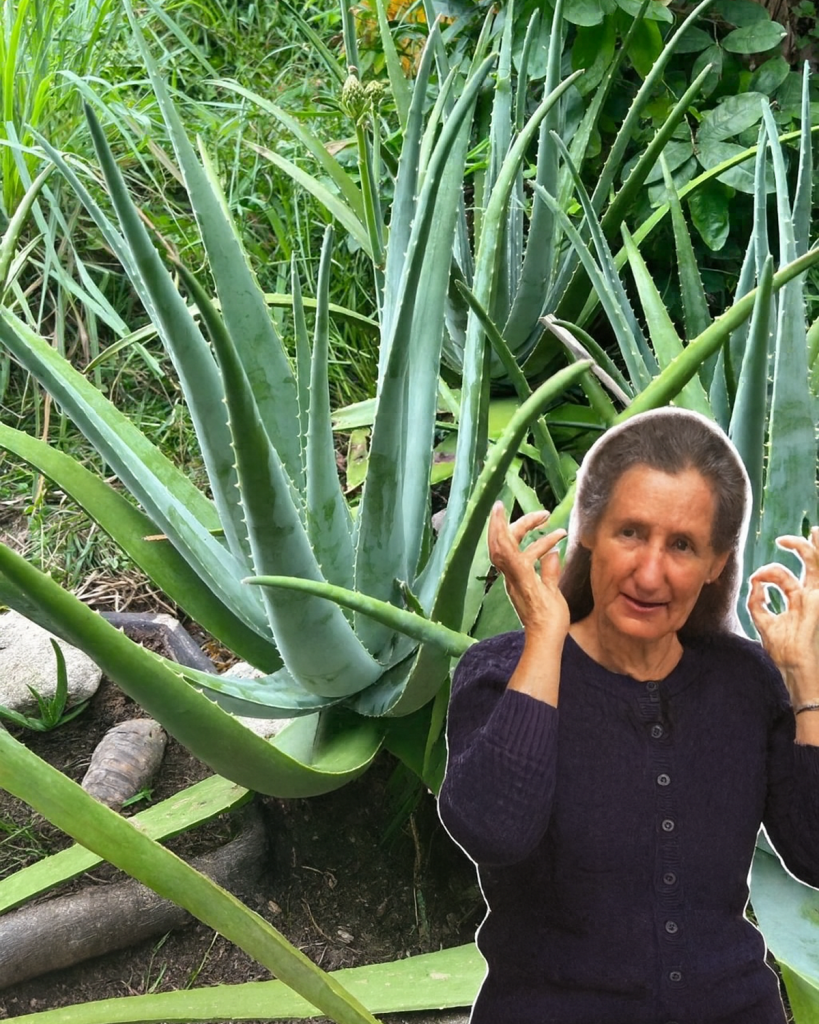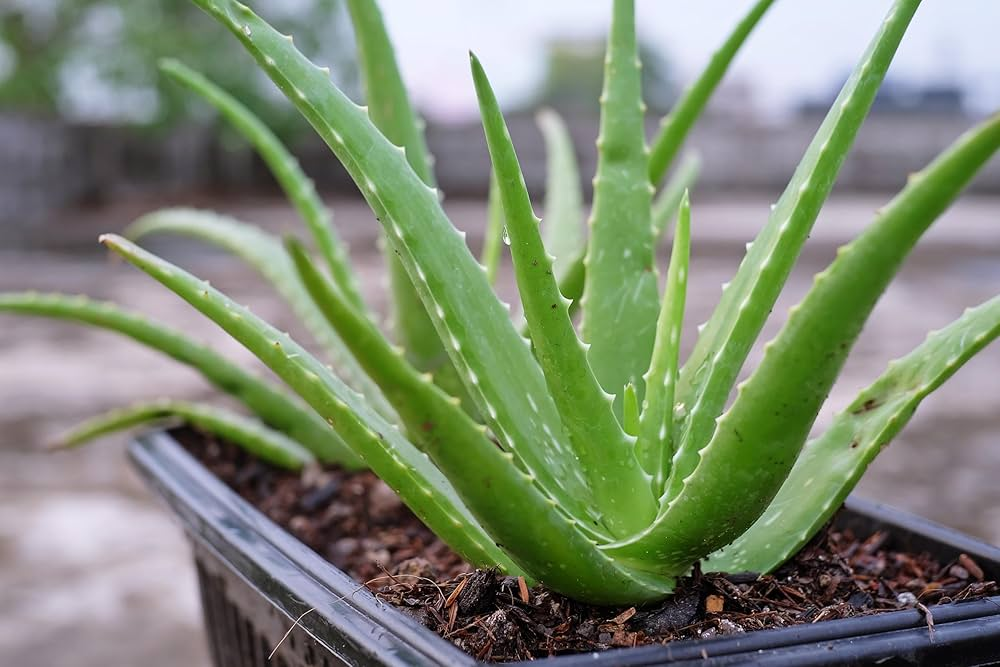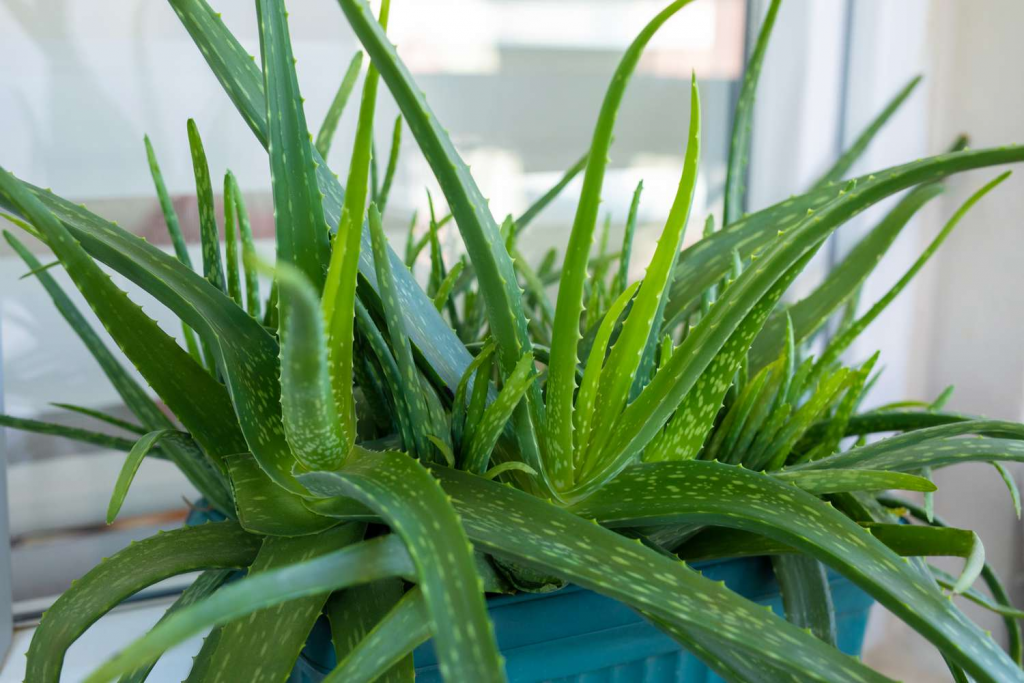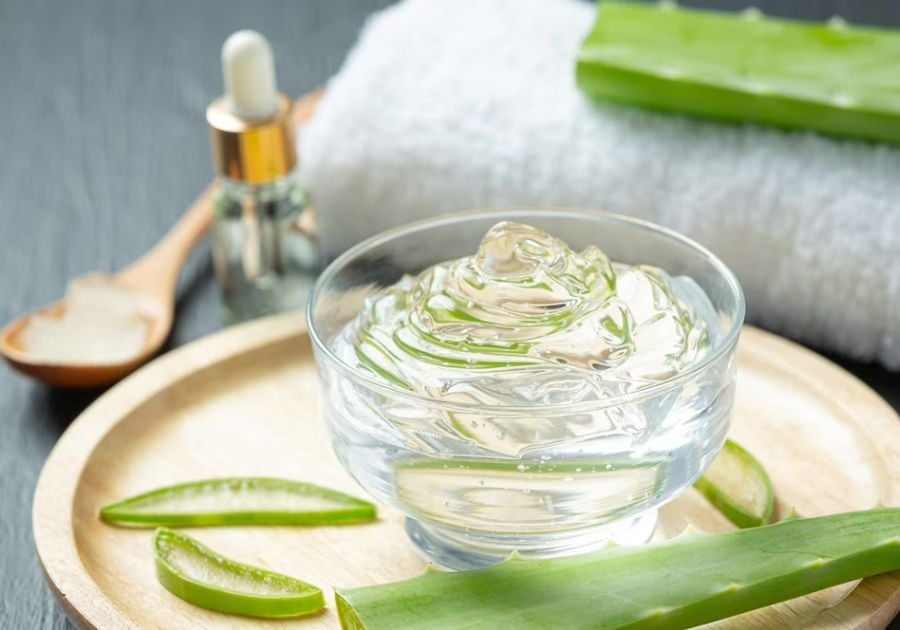Did you know that Aloe vera is one of the oldest healing plants in the world, used for over 6,000 years by ancient civilizations? Egyptians even called it the “plant of immortality,” while Ayurvedic medicine has relied on it for skin, digestion, and overall wellness. Today, Aloe vera remains one of the most popular natural remedies, found in everything from skincare products to health supplements.
But here’s the secret many people overlook: instead of buying expensive Aloe vera products, you can grow the plant right at home. Not only does it save money, but having Aloe vera in your kitchen or garden also gives you immediate access to its fresh gel and numerous health benefits.
In this article, you’ll discover 16 compelling reasons to keep an Aloe vera plant at home—from first-aid solutions to air purification—along with practical tips to care for it. By the end, you’ll see why Aloe vera is more than just a plant; it’s a natural wellness partner.

Why Aloe Vera Deserves a Spot in Your Home
Aloe vera is easy to grow, requires minimal care, and thrives both indoors and outdoors. Its leaves contain a clear gel filled with over 75 active compounds, including vitamins, minerals, amino acids, and antioxidants. That makes it not just a decorative houseplant but also a living medicine cabinet.
16 Benefits of Growing Aloe Vera at Home
1. Natural First Aid for Burns
Fresh Aloe gel instantly cools and soothes minor burns, making it a must-have kitchen remedy.
2. Relief for Sunburn
Its cooling properties help calm redness and irritation caused by too much sun.
3. A Skin Moisturizer
Aloe gel hydrates the skin without making it greasy—perfect for all skin types.
4. Helps Reduce Acne
With antibacterial and anti-inflammatory properties, Aloe vera may support clearer skin.

5. Anti-Aging Support
Rich in antioxidants like vitamins C and E, Aloe may help reduce the appearance of fine lines.
6. Aids in Wound Healing
Applied to cuts or scrapes, Aloe gel may speed up the healing process.
7. Supports Hair Growth
Massaging Aloe gel into the scalp can reduce dandruff and strengthen roots.
8. Natural Mouthwash
Diluted Aloe vera juice can freshen breath and support gum health.
9. Digestive Comfort
In moderation, Aloe juice has been used traditionally to soothe digestion.
10. May Support Blood Sugar Balance
Some studies suggest Aloe vera may have a mild effect on blood sugar regulation.

11. Boosts Immunity
Its bioactive compounds may help strengthen natural defenses.
12. Detoxifying Properties
Aloe juice is often included in detox drinks to flush out impurities.
13. Natural Air Purifier
Like other succulents, Aloe vera absorbs toxins and improves indoor air quality.
14. Easy to Grow and Maintain
Requires minimal water and thrives in sunny windowsills or gardens.
15. Cost-Effective Home Remedy
One plant can replace multiple store-bought products for skincare and minor health needs.
16. A Symbol of Wellness and Positivity
In many cultures, Aloe vera is considered a plant of good energy and healing presence.

Practical Ways to Use Aloe Vera
Fresh Aloe Gel
Cut a leaf, scoop out the gel, and apply directly to skin or hair.
Aloe Drink
Mix 1–2 teaspoons of fresh gel into smoothies or herbal teas (consult your doctor before internal use).
Aloe Mask
Blend Aloe gel with honey or turmeric for a nourishing face mask.
Aloe Hair Treatment
Combine Aloe gel with coconut oil and apply to scalp for 20 minutes before rinsing.

Real-Life Experiences
- Sophia, 35: “I used Aloe straight from my plant after a cooking burn. It worked better than any cream I had at home.”
- David, 50: “Drinking Aloe juice helped me with digestion. I grow two plants so I never run out.”
- Maria, 28: “I started using Aloe gel as a daily moisturizer. My skin feels soft and refreshed without chemicals.”
Caring for Your Aloe Vera Plant
- Place in a sunny location with indirect light.
- Water every 2–3 weeks; Aloe stores water in its leaves.
- Use well-drained soil to prevent root rot.
- Trim older leaves first to encourage new growth.
Conclusion
Growing Aloe vera at home is like having a personal wellness kit right on your windowsill. From soothing burns and hydrating skin to supporting digestion and purifying air, Aloe offers countless benefits in one low-maintenance plant. With just a little care, you’ll have a living source of health and vitality that’s ready whenever you need it.
Quick Takeaways
Is Aloe safe for everyone?
Topical use is safe for most people. Internal use should be done with caution and medical guidance.
How often can I use Aloe gel?
Daily for skin and hair, but avoid overuse internally.
Do I need special soil?
Well-drained soil is essential—think cactus or succulent mix.
Disclaimer: This article is for educational purposes only and does not replace professional medical advice. Always consult a healthcare provider before starting new remedies.




